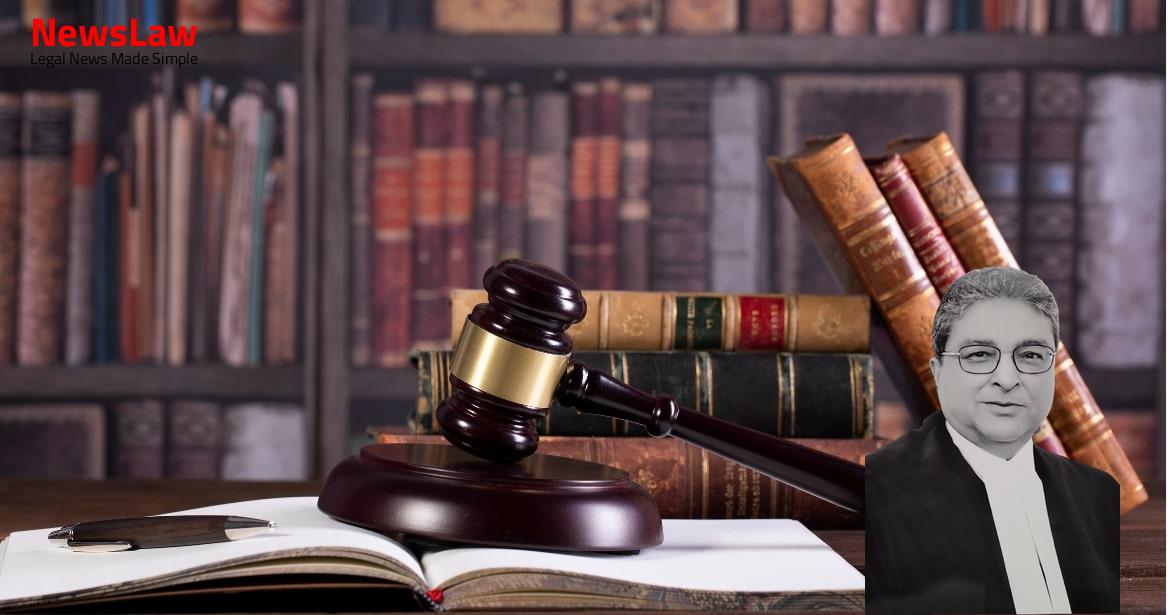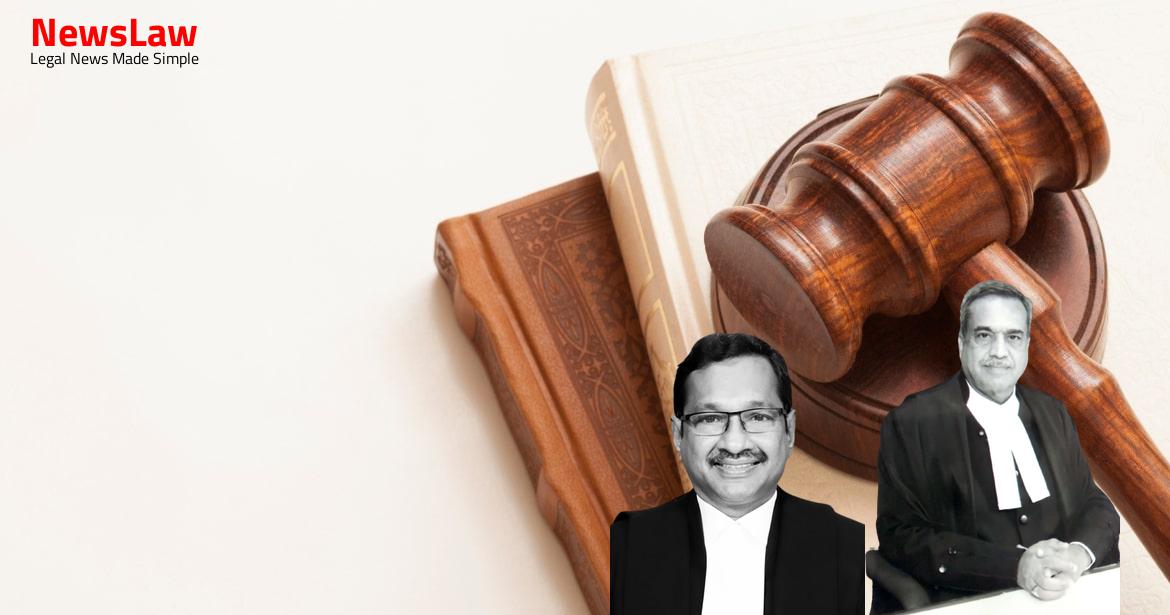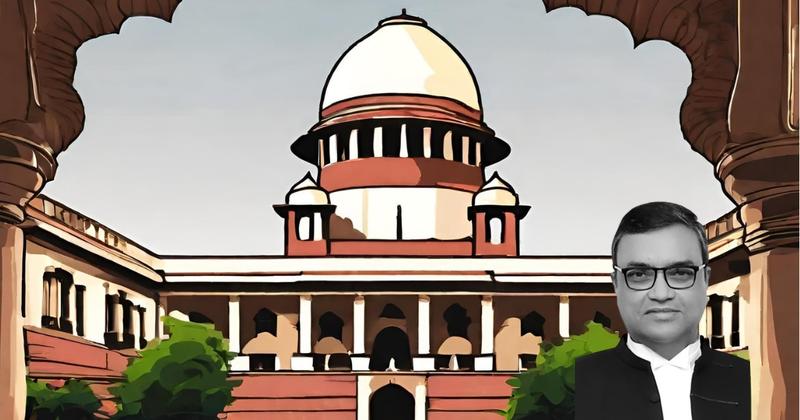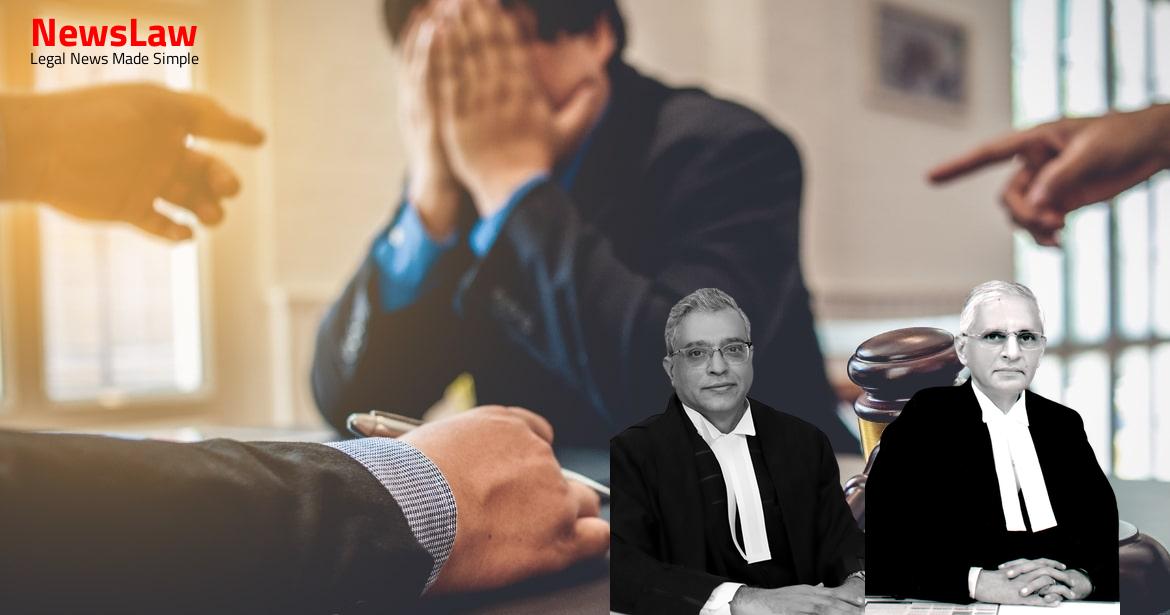In a significant ruling by the Supreme Court of India, the case of Mechanical Engineering Professional Society vs. Ministry of Human Resource Development has been decided. This judgment focuses on the standards of technical education, specifically in the field of Mechanical Engineering. The decision has implications for the recognition and equivalency of certificates in the industry.
Facts
- The appellant is a Society registered under the Societies Registration Act, 1860, established to promote the profession of Mechanical Engineering Professionals.
- A High Level Committee reviewed the recognition granted to Parts I & II of Technician Engineers Examination conducted by the appellant.
- The High Level Committee withdrew the recognition of Associate Membership Examination of Section A & B and Part I and II of Technician Engineers Examination conducted by the Institute of Mechanical Engineers (India), Mumbai for employment under the Central Government.
- Existing students who had already received awards from IME (India), Mumbai were allowed to be eligible for employment in the Central Government.
- IME (India), Mumbai was given liberty to seek recognition for employment purposes in the Central Government after addressing deficiencies in curriculum, examination system, appointment procedures, examiner qualifications, and related issues.
- The matter came up before AICTE regarding deficiencies in the curriculum offered by the appellant in its programs.
- Subordinate posts and services under the Central Government recognized passes in AMIE of the appellant for recruitment.
- MHRD withdrew the recognition granted to the appellant for employment under the Central Government through a notification dated 10.06.2002.
- The Government of Punjab, Department of Education recognized qualifications mentioned in a Notification dated 11.07.1988 for recruitment to subordinate posts under their control.
- Students completing theory papers were required to undergo mandatory apprenticeship/practical training at approved institutions for the award of Diplomas or Degrees in Mechanical Engineering.
- A Notification dated 11.07.1988 recognized Technician Engineers’ Examination conducted by IME (India), Mumbai as equivalent to a Diploma in Mechanical Engineering for employment under the Central Government.
- Civil Appeal No.17922 of 2017 (arising out of SLP (CC) No.7390 of 2013) was listed with other matters but no submissions were made on behalf of the appellant.
- High Court decision on 06.11.2012 in Kartar Singh vs State of Punjab was affirmed by the Supreme Court.
- The Division Bench disposed of the matter on 9.03.2004, stating the issues were considered along with similar matters from Orissa.
- The appellant challenged a Notification dated 10.06.2002 through a writ petition in the Delhi High Court, which was initially stayed but later dismissed on 07.07.2003.
- Certain applications for clarification of the decision dated 03.11.2017 were addressed by the Supreme Court on 22.01.2018.
- An application for clarification and modification of the decision dated 03.11.2017 was filed by the appellant.
Arguments
- The Institution of Mechanical Engineers (India), Mumbai is a professional body that conducts examinations in Mechanical Engineering.
- The appellant did not have infrastructure or laboratories for practical training.
- The examination conducted by the Institution is only a qualifying exam, without equalization with board/university degrees.
- Students privately study course materials and gain practical experience on the job.
- AICTE has always maintained that engineering degrees cannot be pursued through distance mode.
- The Ministry of Human Resource Development is considering the appellant’s application for recognition.
- Certificates granted by the appellant prior to 2013 are recognized, subject to removal of deficiencies.
- The Government will consider granting recognition to the appellant once deficiencies are addressed, within three months of the request.
- A notification from 2006 shows that recognition was granted after deficiencies pointed out by AICTE were resolved.
- The appellant is a non-profit organization and not a teaching institution.
- The exercise undertaken pursuant to communication dated 10.07.2012 and public notice issued in August, 2017 cleared any doubt regarding certificates issued prior to 2013.
- Certificates issued after 2013 were still under consideration by concerned authorities.
- The High Court’s observation that certificates of Membership granted by the appellant were not equivalent to degrees in engineering was disputed.
- The appellant argued that the Government of India recognized their certificate as equivalent to a degree in Mechanical Engineering from a recognized Indian University.
- The question raised was whether a mere certification without training could be considered equivalent to a degree obtained through Technical Education, and if AICTE approval was necessary for such recognition.
- Mr. Dhruv Mehta, the learned Senior Advocate for the appellant, provided evidence of government communications and a compilation detailing the programs conducted by the appellant institution.
Also Read: CRPF Act: Validity of Rule 27 for Compulsory Retirement – Case of Head Constable vs. CRPF
Analysis
- The concept of technical education is broad and includes any idea or innovation in the field.
- AICTE has exclusive authority over technical education, including the approval of courses and programs.
- The Institute of Mechanical Engineers has signed agreements with numerous institutions for practical training and projects.
- Regular examination committee meetings are held to oversee the examination process.
- The institution does not affiliate with coaching classes or local centers for exam preparation.
- The IME offers practical training and project work as integral components of its technical education system.
- There are specific regulations and guidelines governing technical education and equivalency recognition.
- AICTE’s role in setting parameters and norms for technical education is crucial.
- Degree courses in engineering taught through distance education must adhere to AICTE standards.
- Practical training is highlighted as a key aspect of engineering education.
- The quality and equivalence of certificates from professional bodies are subject to stringent evaluation.
- Regular revisions of syllabuses and curriculum are conducted to align with current developments.
- AICTE’s decision regarding equivalency of technical courses from various bodies is final and binding.
- The importance of practical classes and hands-on training is emphasized in technical education.
- The distinction between technical institutions and universities in providing technical education is delineated.
- Review and approval processes by regulatory bodies are essential for maintaining quality in technical education.
- The management of technical education should involve experts, academicians, and industry professionals.
- Employers should assess the value of certificates from professional bodies based on individual merits.
- The role of AICTE in maintaining standards, accreditation, and quality in technical education is paramount.
- Flexible and modular patterns in technical education are proposed for inclusivity and accessibility.
- Monitoring, evaluation, and accreditation processes are vital for sustaining technical education standards.
- The institution offers diverse programmes for women, economically weaker sections, and the handicapped.
- Practical education through workshops and demonstrations is considered essential in technical disciplines.
- The Institute of Mechanical Engineers (India), Mumbai is required to obtain approval from AICTE for its technical courses.
- Even though the communication was prior to the AICTE Act being in force, the mandate of Section 22 disentitles any authority or person, including MHRD, to award degrees.
- The principle that what cannot be done directly cannot be achieved indirectly is well settled.
- It is not permissible to award equivalence to a Certificate issued by an institution that does not satisfy the requirements of the UGC Act.
- The value of the certificate will be determined by each employer when necessary.
- Attempting to evade the provisions of an Act of Parliament by a shift or contrivance is not permissible.
- Certificates issued by the appellant to students enrolled up to 31.05.2013 considered equivalent to a Degree in Mechanical Engineering for employment in the Central Government.
- Exception made for students enrolled up to 31.05.2013 as per Notification and Public Notice issued by the Central Government until 01.06.2013.
- No error found in the assessment made by the High Court.
- Membership of the appellant institute not equivalent to a degree, according to the judgment.
- Appellant’s Certificates were granted equivalence by the MHRD in consultation with AICTE up to 31.05.2013 based on government notifications.
- Students enrolled up to 31.05.2013 eligible for consideration as per MHRD office memorandum/order.
Also Read: DAMEPL vs. DMRC: Curative Petition and Arbitral Award Restoration
Decision
- After 31.05.2013, the certification of equivalence of degree/diploma will be reviewed by the statutory regulator.
- All submissions raised by the appellant are dismissed and Miscellaneous Application No 2367 of 2018 is rejected.
- A Notification issued on 06.12.2012 modified earlier communication, affecting cases of recognition in perpetuity for equivalence in Central Government jobs.
- Students enrolled with institutions with permanent recognition up to 31.05.2013 are eligible for consideration for equivalence in Central Government jobs.
- Orders regarding recognition in perpetuity will cease to have effect from 01.06.2013 onwards.
- Appellant filed SLP (C) No.7390 of 2013 challenging a decision of the High Court, which was later withdrawn.
- CWP No.12909 of 2009 is allowed, while CWP No.9200 of 2012 is dismissed.
- O.M. dated 6.12.2012 regarding the deadline of 31.5.2013 is stayed until the next date of hearing.
- The appellant also challenged the Notification dated 06.12.2012 by filing Writ Petition No.7840 of 2014 in the High Court of Delhi.
- The O.M. dated 6 December 2012 with regard to the deadline of 31 May 2013 remains stayed until further order of the Court.
- Statutory regulators should review fresh proposals/extensions as per their own statutes and regulations.
- Institution of Electronics and Telecommunication Engineers challenged the Notification dated 06.12.2012 in the High Court of Delhi.
- Recognition granted for educational qualifications of the appellant was restored with effect from 16.10.2006.
Case Title: INSTITUTION OF MECHANICAL ENGINEERS (INDIA) THROUGH ITS CHAIRMAN Vs. STATE OF PUNJAB
Case Number: MA-002367 / 2018



